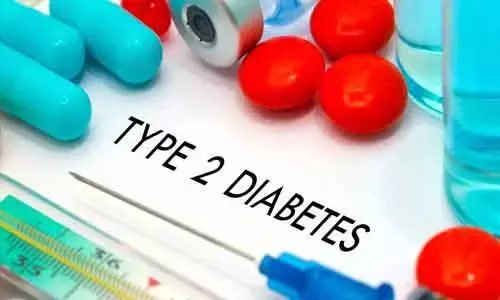- Home
- Medical news & Guidelines
- Anesthesiology
- Cardiology and CTVS
- Critical Care
- Dentistry
- Dermatology
- Diabetes and Endocrinology
- ENT
- Gastroenterology
- Medicine
- Nephrology
- Neurology
- Obstretics-Gynaecology
- Oncology
- Ophthalmology
- Orthopaedics
- Pediatrics-Neonatology
- Psychiatry
- Pulmonology
- Radiology
- Surgery
- Urology
- Laboratory Medicine
- Diet
- Nursing
- Paramedical
- Physiotherapy
- Health news
- Fact Check
- Bone Health Fact Check
- Brain Health Fact Check
- Cancer Related Fact Check
- Child Care Fact Check
- Dental and oral health fact check
- Diabetes and metabolic health fact check
- Diet and Nutrition Fact Check
- Eye and ENT Care Fact Check
- Fitness fact check
- Gut health fact check
- Heart health fact check
- Kidney health fact check
- Medical education fact check
- Men's health fact check
- Respiratory fact check
- Skin and hair care fact check
- Vaccine and Immunization fact check
- Women's health fact check
- AYUSH
- State News
- Andaman and Nicobar Islands
- Andhra Pradesh
- Arunachal Pradesh
- Assam
- Bihar
- Chandigarh
- Chattisgarh
- Dadra and Nagar Haveli
- Daman and Diu
- Delhi
- Goa
- Gujarat
- Haryana
- Himachal Pradesh
- Jammu & Kashmir
- Jharkhand
- Karnataka
- Kerala
- Ladakh
- Lakshadweep
- Madhya Pradesh
- Maharashtra
- Manipur
- Meghalaya
- Mizoram
- Nagaland
- Odisha
- Puducherry
- Punjab
- Rajasthan
- Sikkim
- Tamil Nadu
- Telangana
- Tripura
- Uttar Pradesh
- Uttrakhand
- West Bengal
- Medical Education
- Industry
Diabetes patients at 21 percent higher risk for CVD: Circulation

UK: Type 2 diabetes patients with optimally controlled risk factors are at 21% higher risk of developing cardiovascular disease (CVD) compared to those without the condition, suggests a recent study in the journal Circulation. According to the study, T2D patients without cardio-renal disease may greatly benefit from CVD risk factor intervention.
"Compared with people without diabetes, those with T2D have higher risks for CVD events, CVD mortality, and heart failure hospitalization even when all causal risk factors are optimally controlled to levels mandated in current clinical guidelines," wrote the authors. "We found that the association between risk factor levels and CVD outcomes was much stronger in people with T2D without cardio-renal disease when compared with those with cardio-renal disease at cohort entry."
Alison K. Wright, The University of Manchester, Manchester, UK, and colleagues examined the association between the degree of risk factor control and CVD risk in type 2 diabetes and to assess if the presence of cardio-renal disease modifies these relationships.
The researchers conducted a retrospective cohort study using data from English practices from SCI-Diabetes dataset (Scottish Care Information-Diabetes) and CPRD GOLD (Clinical Practice Research Datalink) with linkage to hospital and mortality data. The researchers identified 101 749 with type 2 diabetes (T2D) in CPRD matched with 378 938 controls without diabetes and 330 892 with type 2 diabetes in SCI-Diabetes between 2006 and 2015.
The main exposure was number of optimized risk factors: nonsmoker, total cholesterol ≤4 mmol/L, triglycerides ≤1.7 mmol/L, glycated haemoglobin (HbA1c) ≤53 mmol/mol (≤7.0%), systolic blood pressure <140mm Hg, or <130 mm Hg if high risk. Cox models were used to assess cardiovascular risk associated with levels of risk factor control.
Key findings of the study include:
- In CPRD, the mean baseline age in T2D was 63 years and 28% had cardio-renal disease (SCI-Diabetes: 62 years; 35% cardio-renal disease).
- Over 3 years follow-up (SCI-Diabetes: 6 years), CVD events occurred among 27 900 (27%) CPRD-T2D, 101 362 (31%) SCI-Diabetes-T2D, and 75 520 (19%) CPRD-controls.
- In CPRD, compared with controls, T2D participants with optimal risk factor control (all risk factors controlled) had a higher risk of CVD events (adjusted hazard ratio, 1.21).
- In T2D participants from CPRD and SCI-Diabetes, pooled hazard ratios for CVD associated with 5 risk factors being elevated versus optimal risk factor control were 1.09 in people with cardio-renal disease but 1.96 in people without cardio-renal disease.
- People without cardio-renal disease were younger and more likely to have suboptimal risk factor control but had fewer prescriptions for risk factor modifying medications than those with cardio-renal disease.
"Since overall risk factor management was poor, we encourage greater use of guideline-driven care, newer agents including SGLT2i and GLP-1RA, pharmacist-led clinics, IT systems supporting self-management, and clinical decision to support for clinical staff," concluded the authors.
The study, "Risk Factor Control and Cardiovascular Event Risk in People With Type 2 Diabetes in Primary and Secondary Prevention Settings," is published in the journal Circulation.
DOI: https://www.ahajournals.org/doi/10.1161/CIRCULATIONAHA.120.046783
Dr Kamal Kant Kohli-MBBS, DTCD- a chest specialist with more than 30 years of practice and a flair for writing clinical articles, Dr Kamal Kant Kohli joined Medical Dialogues as a Chief Editor of Medical News. Besides writing articles, as an editor, he proofreads and verifies all the medical content published on Medical Dialogues including those coming from journals, studies,medical conferences,guidelines etc. Email: drkohli@medicaldialogues.in. Contact no. 011-43720751


